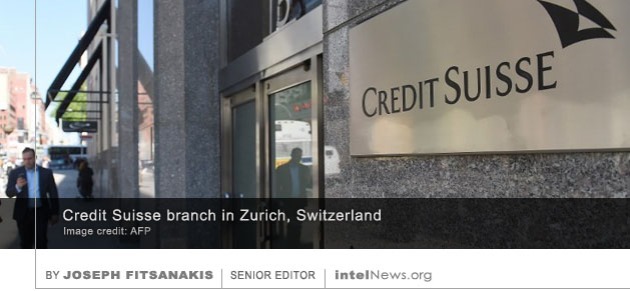Allegations of espionage rock Credit Suisse, as more employees come forward
December 19, 2019 1 Comment
 Credit Suisse, one of the world’s most powerful banking firms, says it has opened an investigation into claims that it paid private investigators to spy at individuals, just two months after a similar scandal involving espionage and surveillance rocked the company.
Credit Suisse, one of the world’s most powerful banking firms, says it has opened an investigation into claims that it paid private investigators to spy at individuals, just two months after a similar scandal involving espionage and surveillance rocked the company.
In October of this year, two senior Credit Suisse executives resigned amidst a high-stakes espionage scandal, which may have prompted a suicide. The alleged target of the espionage was Iqbal Khan, the former Chief Executive Officer (CEO) of Credit Suisse’s wealth-management division. Khan alleged that he was spied on by private investigators, paid for by Credit Suisse, after leaving the firm. One of the private investigators involved in the case, described as “an external security expert” who mediated between Credit Suisse and the investigation firm, committed suicide.
At the time, Credit Suisse described the surveillance on Khan as “strictly an isolated incident”. However, on December 11, The Wall Street Journal published allegations by another Credit Suisse executive, Colleen Graham, who said that she had been spied on after leaving her job at the firm. She alleged that she underwent three days of intensive surveillance by persons unknown in July of 2017. Credit Suisse was dismissive of Graham’s claims, saying that they were baseless.
But on Wednesday the firm announced the launching of a new probe after a third employee, who used to work directly under Credit Suisse Chief Executive Officer Tidjane Thiam, alleged that he too had been spied on. The allegations were made by Peter Goerke, and were the subject of a headline article by the respected Swiss daily Neue Zürcher Zeitung. The article was accompanied by documents and photographs submitted by Goerke, which are said to support his claims.
There are now concerns that spying on former and current employees may have been a standard operating procedure at Credit Suisse. In an article published on Wednesday, The Wall Street Journal said that the alleged incidents “highlight the ethical and reputational pitfalls companies encounter when they physically monitor employees”.
► Author: Joseph Fitsanakis | Date: 19 December 2019 | Permalink






